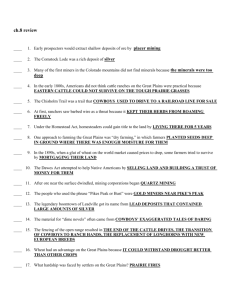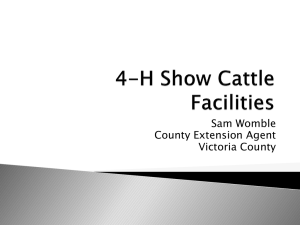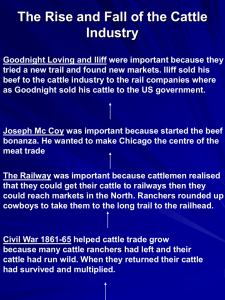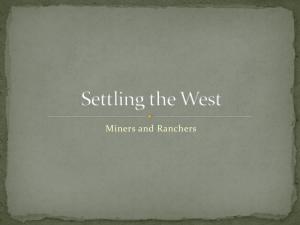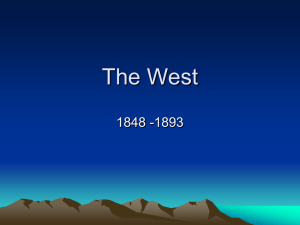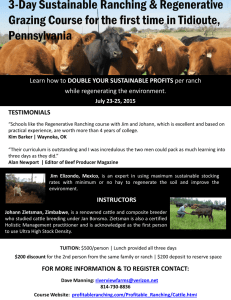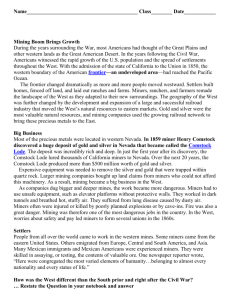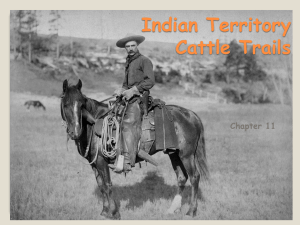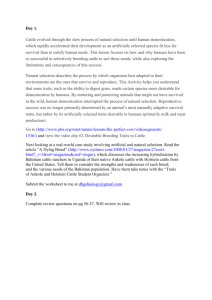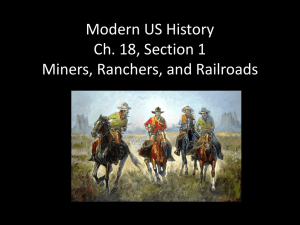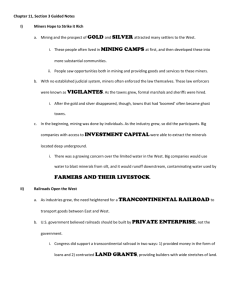8-1 study guide notes
advertisement
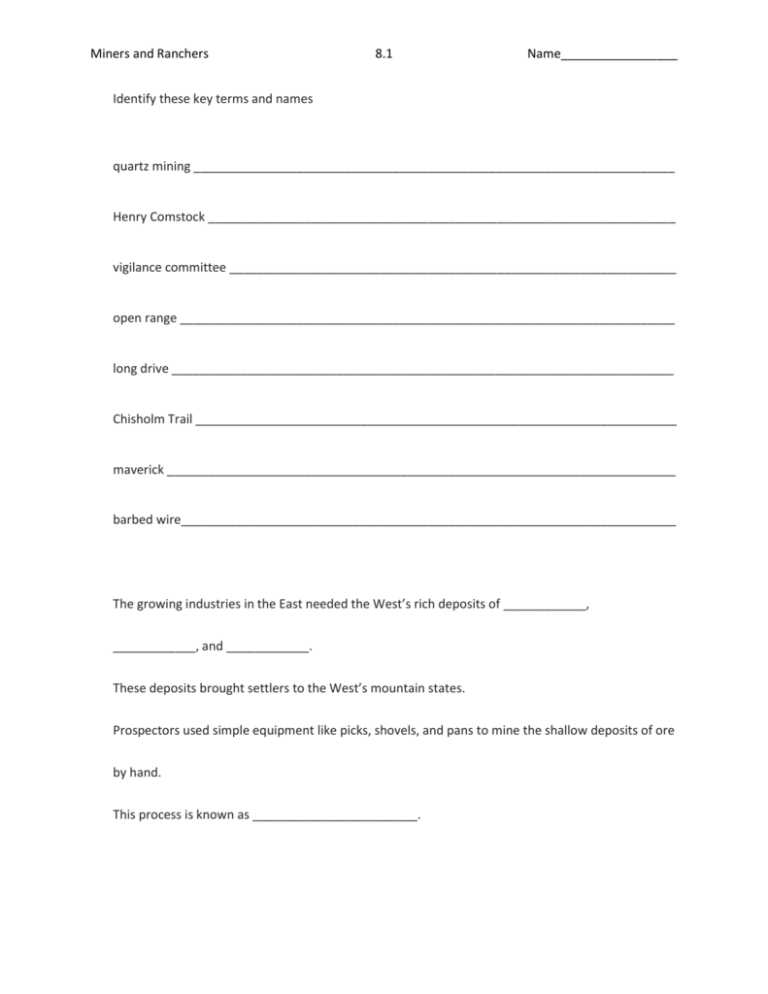
Miners and Ranchers 8.1 Name_________________ Identify these key terms and names quartz mining ______________________________________________________________________ Henry Comstock ____________________________________________________________________ vigilance committee _________________________________________________________________ open range ________________________________________________________________________ long drive _________________________________________________________________________ Chisholm Trail ______________________________________________________________________ maverick __________________________________________________________________________ barbed wire________________________________________________________________________ The growing industries in the East needed the West’s rich deposits of ____________, ____________, and ____________. These deposits brought settlers to the West’s mountain states. Prospectors used simple equipment like picks, shovels, and pans to mine the shallow deposits of ore by hand. This process is known as ________________________. Miners and Ranchers 8.1 Name_________________ Corporations dug deep beneath the surface to mine the deposits of ore in a process known as ________________________. In 1859 prospector Henry Comstock staked a claim for a silver mine in ________________________, Nevada. This caused Virginia City, Nevada, to go from an outpost to a boomtown almost overnight. Several years later, the mines ran out of silver and the boomtown became a ___________________. The cycle of boom and bust was repeated throughout the mountainous West. During boom times, ____________ was a serious problem. Vigilance committees formed to track down and punish wrongdoers. Mining helped the growth of Colorado, the Dakota Territory, and Montana. Mining in Colorado spurred the building of ____________through the Rocky Mountains. Denver became the supply point for the mining areas and the second largest city in the West after ________________________. After the Civil War, many Americans began building large cattle ranches on the Great Plains. The ________________________ was a breed of cattle that could survive the harsh climate of the plains. The cattle ranching industry grew in part because of the ________________________–vast areas of grasslands owned by the federal government. Cattle raisers could graze their herds free of charge and without boundaries. Miners and Ranchers 8.1 Name_________________ During the Civil War, large numbers of eastern cattle were slaughtered to feed the Union and Confederate armies. After the war, beef prices ____________. This made it worthwhile to round up the longhorns. The first ________________________in 1866 across the Great Plains to the railroad in Sedalia, Missouri, proved that cattle could be driven north to the rail lines and sold for 10 times the price they could get in Texas The major route for moving cattle was the ________________________that went from Texas to Abilene, Kansas. A long drive began with the spring roundup to collect cattle from the open range. The cattle were divided and branded. Then cowboys moved the herds of cattle along the trails to the rail lines. Most cowboys were former Confederate army soldiers, a few were Hispanic, and many were African American. The long cattle drives ended, in part, when the open range was largely fenced off with ________________________. Investors from the East and from Britain put money into the cattle business, causing an oversupply of animals on the market. Miners and Ranchers 8.1 Prices for cattle greatly ____________. Many ranchers went ____________. Also, the harsh winters of 1886–1887 ____________many cattle. Name_________________
